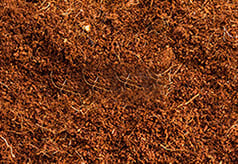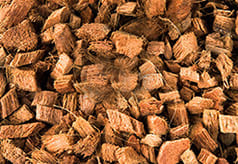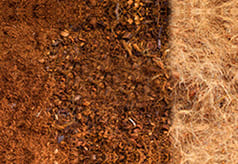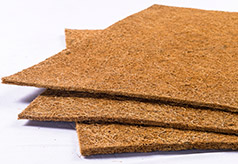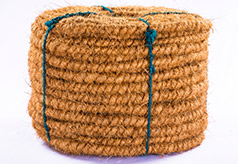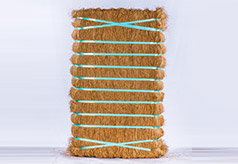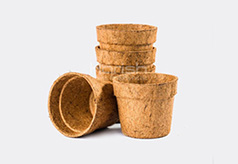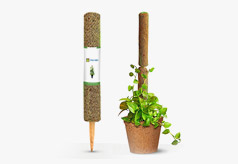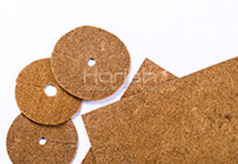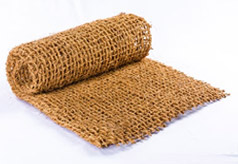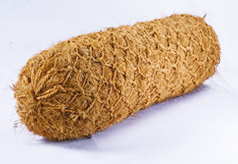- Overview
- Plants
- Reptiles & Amphibians
Overview of Husk Chips
Husk chips are chunks of chipped coconut husks, that retain the same level of cellulose and lignin which majorly constitutes mesocarp of the coconut. The combination of balanced pH, low natural salt content and minimal odour makes it a perfect medium for nurturing all plants. The usage of husk chips is extended to terrariums for growing plants like moss, fern, baby cactus and other exotic flowering species.
Husk chips also finds its usage in vivarium, to provide a natural habitat for amphibians such as tortoises, reptiles, and insects.
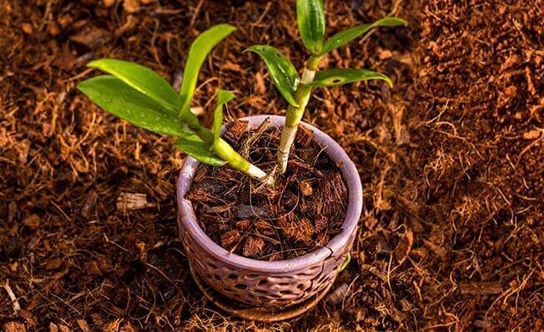
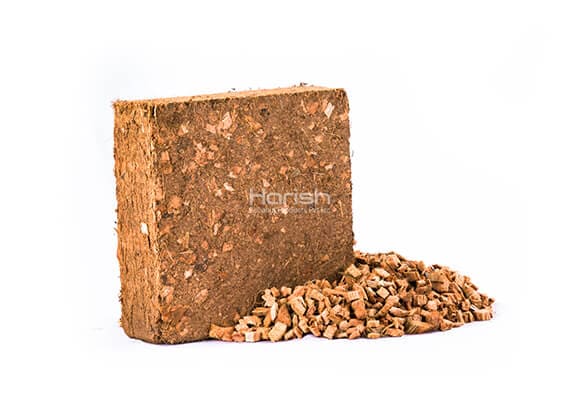
What makes coconut husk chips a better alternative over tree barks and others?
- Long lasting than bark
With slow degradation - Holds water like
sponge - Neutral pH and innate
buffering capacity
- 100% natural and
renewable Resource - Excellent soil additive
for orchids and potting mix - Uniform, clean and
zero wastage
Plants
Coconut husk chips can be used on their own or mixed with our organic coir pith growing medium and other potting soil. The husk chips are perfect for orchids, bromeliads, anthuriums or any other plant that thrives in bark, rockwool or clay medium.
Capabilities
We are soliciting enquiries for buffered substrate at the moment and aiming to serve you soon!
Applications
-
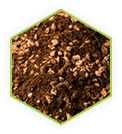
Blended with any growing medium for increasing porosity and optimising water holding capacity.
-

Best for use in landscapes and pathways. A proven snail deterrent.
-

Blended with charcoal and perlite for exotic flowering plants.
Products
- mm chips
- Coco Crush
Clean Husk chips of uniform size with zero wastage. The husk can be chipped to cubes of mentioned sizes
before compressed as a block.
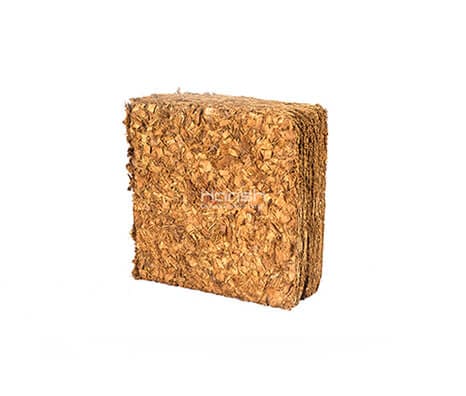
Specifications
| Base material | Coconut husk chips – washed |
|---|---|
| Chip size (mm) | 6, 8, 10, 12 |
| Physical form | compressed blocks |
| Dry weight | 5 kg ±5% |
| Compressed block size (L x B x H) | 28 x 28 x 14 cms |
| Moisture | 15% – 20% |
| Packaging | Stacked and strapped on pallet |
The semi-fibrous husk chips of uneven sizes ideal for blending with coir pith to increase the porosity level
and to maintain the water retention capacity. The coco crush possess the capability to be used as
an individual growing medium.
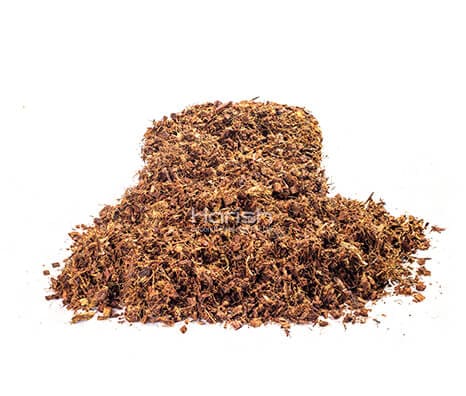
Specifications
| Base material | Coconut husk chips – washed |
|---|---|
| Physical form | compressed blocks |
| Dry weight | 5 kg ±5% |
| Compressed block size (L x B x H) | 28 x 28 x 14 cms |
| Moisture | 15% – 20% |
| Packaging | Stacked and strapped on pallet |
Enquiry Form
Reptiles and amphibians
Coconut husk chips are the latest form of economical animal, reptile, and amphibian substrate. The size of the husk chips ranging between various sizes are preferred according to the size of the living creature.
Husk chips
Chunky pieces; available in small, medium, and large sizes. Chip size ranges from 4 millimetres to 12 millimetres.
Coco crush
Fluffy, fibrous, and stringy in texture: not as chunky as chips but softer in texture.
Specifications
| Base material | Coconut husk chips – washed | Coco crush – washed | |||
|---|---|---|---|---|---|
| Chip size (millimetres) | 6mm | 8mm | 12mm | less than 3mm chips + fibres | |
| Physical form | Compressed Blocks | ||||
| Dry weight | 5 kg +5% | ||||
| Compressed block size (L x B X H) | 28 X 28 X 14 cms | ||||
| Moisture content | 15 % – 20% | ||||
| Packaging | Stacked and strapped on pallet | ||||
Application
-

When used for tropical species
Coconut husk chips and coco crush mixture acts as a natural sponge filter, keeping cages humid and absorbs waste..
-

When used for desert species
Coconut husk chips absorbs waste and keeps the enclosures clean, fresh and odour free..
-
 Turtle
Turtle -
 Chameleon
Chameleon -
 Python
Python -
 Newt
Newt -
 Monitor lizard
Monitor lizard
Why husk chips is preferred over tree bark, soil, cypress mulch, sphagnum moss and other medium?
- 100% natural and
renewable Resource - Quick absorbing nature
can be wetted to Increase
humidity. - Easier to keep out of
Water and food dishes - Reusable, soiled chips
can be washed and
Dried for use.

